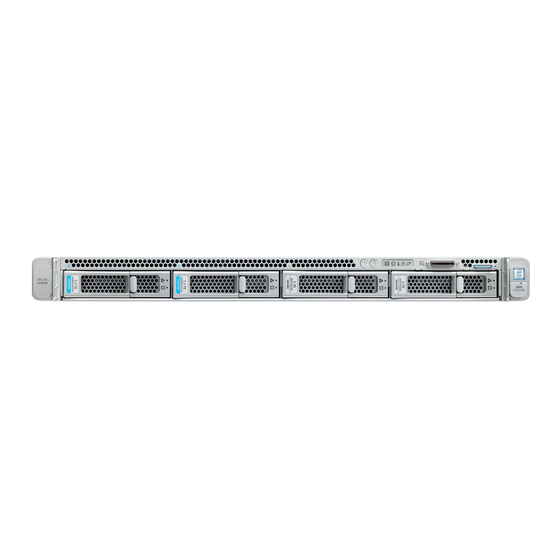Cisco Expressway Series Manuale di configurazione - Pagina 39
Sfoglia online o scarica il pdf Manuale di configurazione per Porta d'ingresso Cisco Expressway Series. Cisco Expressway Series 47. Ip port usage

Cisco Expressway IP Port Usage Configuration Guide
Web Proxy for Cisco Meeting Server Port Reference
Table 20 Web Proxy for Meeting Server
Purpose
WebRTC client
access
Web interface
access
SSH tunnels for
firewall traversal
SIP signaling
TURN client
requests
TURN client
requests
‡
TURN relays
† You must change the administration port because WebRTC clients use 443. If the WebRTC browser tries to access
port 80, the Expressway-E redirects the connection to 443.
* Options for alternative management ports are shown on the web interface. You can use the CLI to change it to a
different port, eg. 7443, so that you can lock it down. We strongly advise against opening an external management
port on the public IP address. If the browser tries to access port 80, the Expressway-E redirects the connection to
your chosen port.
‡ You must configure your external firewall to allow NAT reflection for the Expressway-E public IP address. (Firewalls
typically mistrust packets that have the same source and destination IP address)
Src. IP
Src.
ports
Guest PCs
1024-
65535
Administrator
1024-
PCs
65535
Expressway-
30000-
C
35999
Expressway-
25000-
C
29999
Any IP
Meeting
3478
Server
Expressway-E
24000-
public IP
29999
Protocol
Dest. IP
TLS
Expressway-E public
IP
TLS
Expressway-E IP
TCP
Expressway-E private
IP
TCP or
Expressway-E
TLS
UDP and
Expressway-E
TCP
TURN server public IP
UDP and
Expressway-E
TCP
TURN server private IP
UDP and
Expressway-E public
TCP
IP
39
Dst. Ports
†
443
*
NOT 443
2222
7001 (for first traversal zone;
7002 for second etc.)
3478
3478
24000-29999
